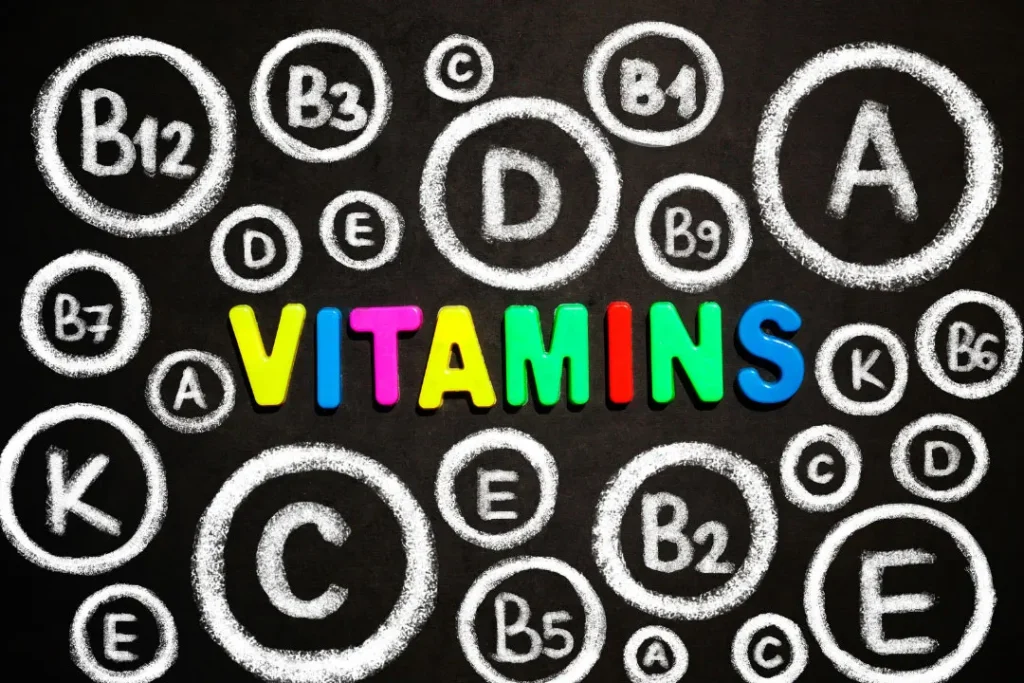An essential amino acid known as tryptophan is crucial for many physiological functions. Serotonin, melatonin, and niacin, which are crucial for regulating mood, sleep-wake periods, and energy metabolism, are precursors to this amino acid. Thus, tryptophan supplement is an excellent choice for people looking to improve their sleep quality, mood and motivation. The nature of tryptophan, its health advantages, the best dosage, any side effects, possible drug interactions, and responsible usage will all be covered in this piece.
You May Also Like:
5 Great Natural Nootropics and How They Work
5 Great Ingredients to Boost Your Brain Power Without Nootropics Side Effects
Nature of Tryptophan
Tryptophan is a necessary amino acid that can be found in foods like meat, seafood, dairy products, and eggs. Tryptophan is a big, polar, fragrant amino acid with an indole ring side chain. Its molecular weight is 204.23 g/mol. The pKa values for its carboxyl group and amino group are 2.38 and 9.39, respectively. Tryptophan must be obtained from food or supplements because it cannot be synthesized by the body.

Health Benefits of Tryptophan
Numerous health advantages of tryptophan include mood regulation, better sleep, and improved brain function. Serotonin, a neurotransmitter that controls mood, appetite, and slumber, is produced from tryptophan. Serotonin deficiency has been linked to depression, nervousness, and sleeplessness. Taking supplements with tryptophan has been demonstrated to raise serotonin levels in the brain, which enhances mood, lessens anxiety, and improves the quality of sleep.
Additionally, tryptophan serves as a building block for the hormone, melatonin that controls the sleep-wake pattern. Melatonin is made from serotonin in the pineal gland. This is controlled by the circadian rhythm. It has been demonstrated that tryptophan supplements raise melatonin levels in the body, improving both the quality and amount of sleep.
Additionally, tryptophan supplementation may also enhance cognitive performance. Niacin, a B vitamin essential to the production of energy, is a precursor to tryptophan. NAD+, a coenzyme involved in several metabolic processes including glycolysis, the citric acid cycle, and oxidative phosphorylation, is produced when niacin is consumed. NAD+ levels in the body have been shown to rise with tryptophan supplementation which leads to improved cognitive performance and energy metabolism.

Chemistry of Tryptophan
Since tryptophan is an essential amino acid, it cannot be produced by the body and must be consumed through food. It is one of the twenty amino acids that the body uses to create proteins. High-protein foods like meat, seafood, poultry, eggs, and dairy goods contain tryptophan. Additionally, it is present in plant-based foods like legumes, nuts, and seeds.
Tryptophan is transformed by the body into a number of vital substances, such as serotonin, melatonin, and niacin. Melatonin is a hormone as previously mentioned controls the sleep-wake pattern, whereas serotonin is a neurotransmitter that controls mood, appetite, and sleep. Niacin, also referred to as vitamin B3, is crucial for a healthy epidermis and energy metabolism.

Physiological Mechanisms of Action of Tryptophan
Tryptophan is converted into serotonin, melatonin, and niacin during the biochemical process of action. Insulin- and carbohydrate-sensitive transporter protein carries tryptophan across the blood-brain barrier. More tryptophan can enter the brain and be converted into serotonin in situations when levels of both tryptophan and insulin are high. For instance, both of these are high after a meal heavy in carbohydrates.
Serotonin is a neurotransmitter that regulates mood, appetite, and sleep-wake cycles, among other physiological functions. Anxiety, depression, and other mood disorders have all been related to low serotonin levels. Supplementing with tryptophan has been demonstrated to raise serotonin levels in the brain, which may enhance mood and lessen the signs of depression and anxiety.
In the pineal gland, which is found in the brain, serotonin is converted into melatonin. Low amounts of melatonin have been associated with sleep disorders like insomnia. Melatonin regulates the sleep-wake cycle. The body’s melatonin levels have been shown to rise when tryptophan supplementation is used, which may lead to better and longer-lasting slumber.
Niacin is a crucial vitamin that supports a healthy epidermis and energy metabolism and as mentioned it can be produced from tryptophan.
Tryptophan has been demonstrated to have antioxidant qualities in addition to its function in the synthesis of melatonin, niacin, and serotonin. Free radicals are reactive molecules that can harm cells and accelerate aging which will lead to illness. Antioxidants shield cells from this damage.
Tryptophan’s conversion into a number of crucial substances that are involved in mood modulation, sleep-wake cycles, and energy metabolism constitutes the majority of its physiological mechanisms of action. Supplementing with tryptophan has been shown to raise the body’s amounts of serotonin and melatonin, which may enhance mood and sleep quality.

Optimal Dosage of Tryptophan
Depending on the user and their needs, there are various tryptophan dosage recommendations. A dosage of 1-3 grams per day is usually advised for mood regulation and sleep improvement. A lesser dose of 500–1000 mg per day might be adequate for cognitive enhancement. It is crucial to remember that tryptophan should be consumed with a carbohydrate supply to maximize brain absorption. Tryptophan may be less effective and absorb less readily if taken on an empty stomach.
Side Effects of Tryptophan
Supplementing with tryptophan is typically regarded as secure and well-tolerated. However, some people may encounter negative side effects like sickness, diarrhea, vertigo, and headaches. Usually, these minor effects go away on their own. Tryptophan supplementation has occasionally been linked to the potentially fatal disease known as eosinophilia-myalgia syndrome (EMS), which causes respiratory distress, skin rashes, and muscular pain. High tryptophan doses, prolonged use, and concomitant use of other supplements or medications all increase the chance of EMS.

Potential Substance Interactions with Tryptophan
Antidepressants, antipsychotics, and anti-anxiety drugs, among others, may interact negatively with tryptophan supplementation. The danger of serotonin syndrome, a potentially fatal condition marked by high levels of serotonin in the body, may rise if tryptophan is taken concurrently with these medications. Before beginning tryptophan supplementation, it’s crucial to speak with a healthcare professional, particularly if you’re already taking any medications or supplements.
Best Responsible Use of Tryptophan
The best way to use tryptophan responsibly is to start with a small dose and progressively increase it as necessary. To increase tryptophan’s absorption into the brain, it is crucial to consume it with a source of carbohydrates. Tryptophan should not be taken on an empty stomach and should be taken in the evening to aid in slumber. It is crucial to adhere to the advised dosage and not go over it, as doing so may increase your risk of experiencing side effects and even possibly fatal conditions.
Tryptophan:
Conclusion
Tryptophan serves as an excellent choice of supplement to relieve your anxiety, and depression and improve your sleep quality. Tryptophan acts as a mood elevator by elevating serotonin and melatonin levels in the body. Both of these are respectively crucial in stress control and the body’s circadian rhythm. However, it is recommended that you seek advice from your healthcare providers to understand the appropriate way to include tryptophan supplements into your daily diet. For instance, tryptophan can best perform if it is taken along with carbohydrates and not on an empty stomach. You should also search for trustable and reputable sources of tryptophan to ensure its quality and health benefits.
References:
- “Tryptophan: Overview, Benefits, and Food Sources” and then link: https://www.healthline.com/nutrition/tryptophan
- “Tryptophan and its role in sleep and mood” and then link: https://www.sciencedirect.com/science/article/abs/pii/B9780443155895000013
- “Tryptophan metabolism and brain function: focus on kynurenine and other indole metabolites
” and then link: https://pubmed.ncbi.nlm.nih.gov/10443567/ - “Tryptophan: Benefits, Side Effects, and Dosage” and then link: https://www.medicalnewstoday.com/articles/324845
Important Note: The information contained in this article is for general informational purposes only, and should not be construed as health or medical advice, nor is it intended to diagnose, prevent, treat, or cure any disease or health condition. Before embarking on any diet, fitness regimen, or program of nutritional supplementation, it is advisable to consult your healthcare professional in order to determine its safety and probable efficacy in terms of your individual state of health.
Regarding Nutritional Supplements Or Other Non-Prescription Health Products: If any nutritional supplements or other non-prescription health products are mentioned in the foregoing article, any claims or statements made about them have not been evaluated by the U.S. Food and Drug Administration, and such nutritional supplements or other health products are not intended to diagnose, treat, cure, or prevent any disease.


